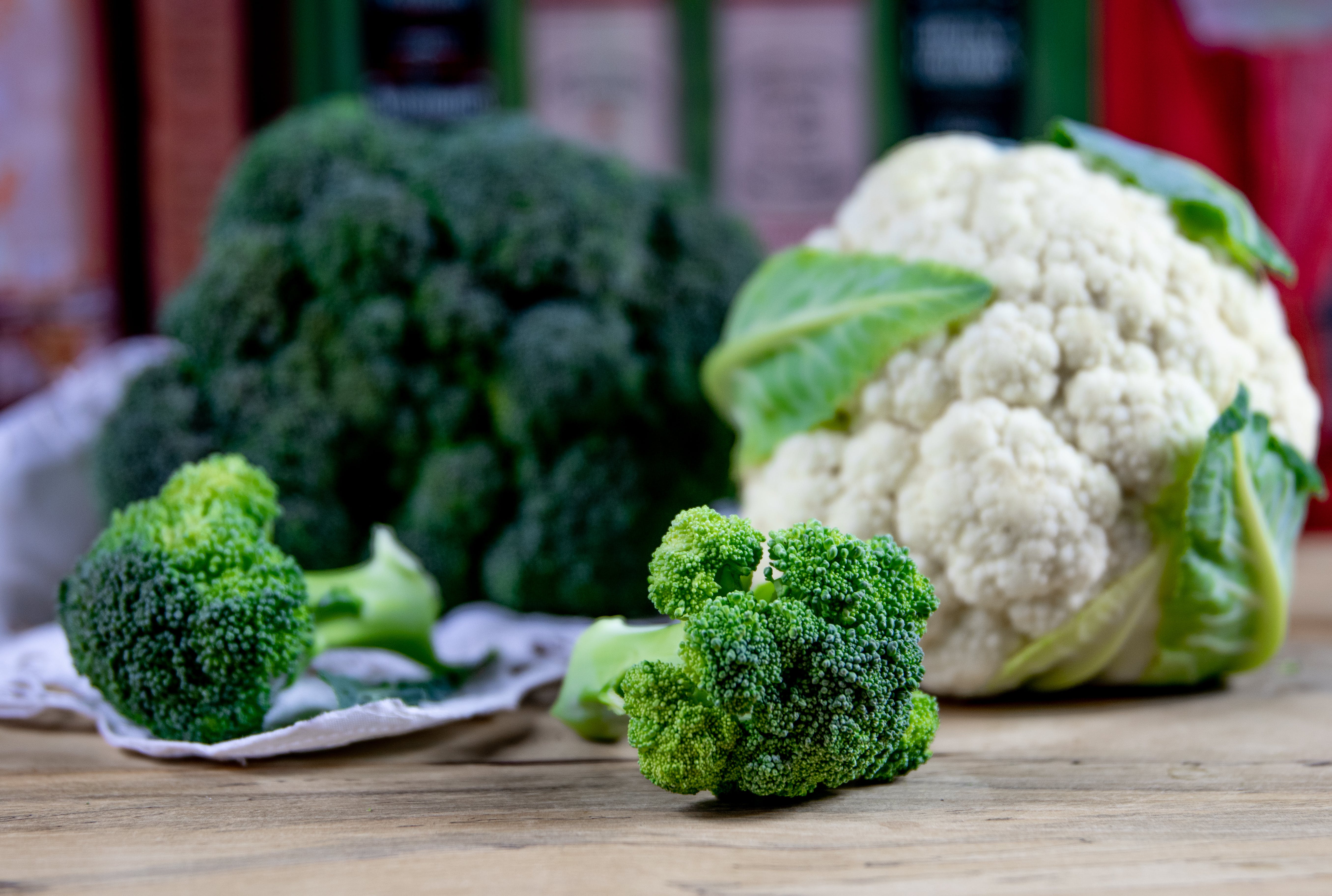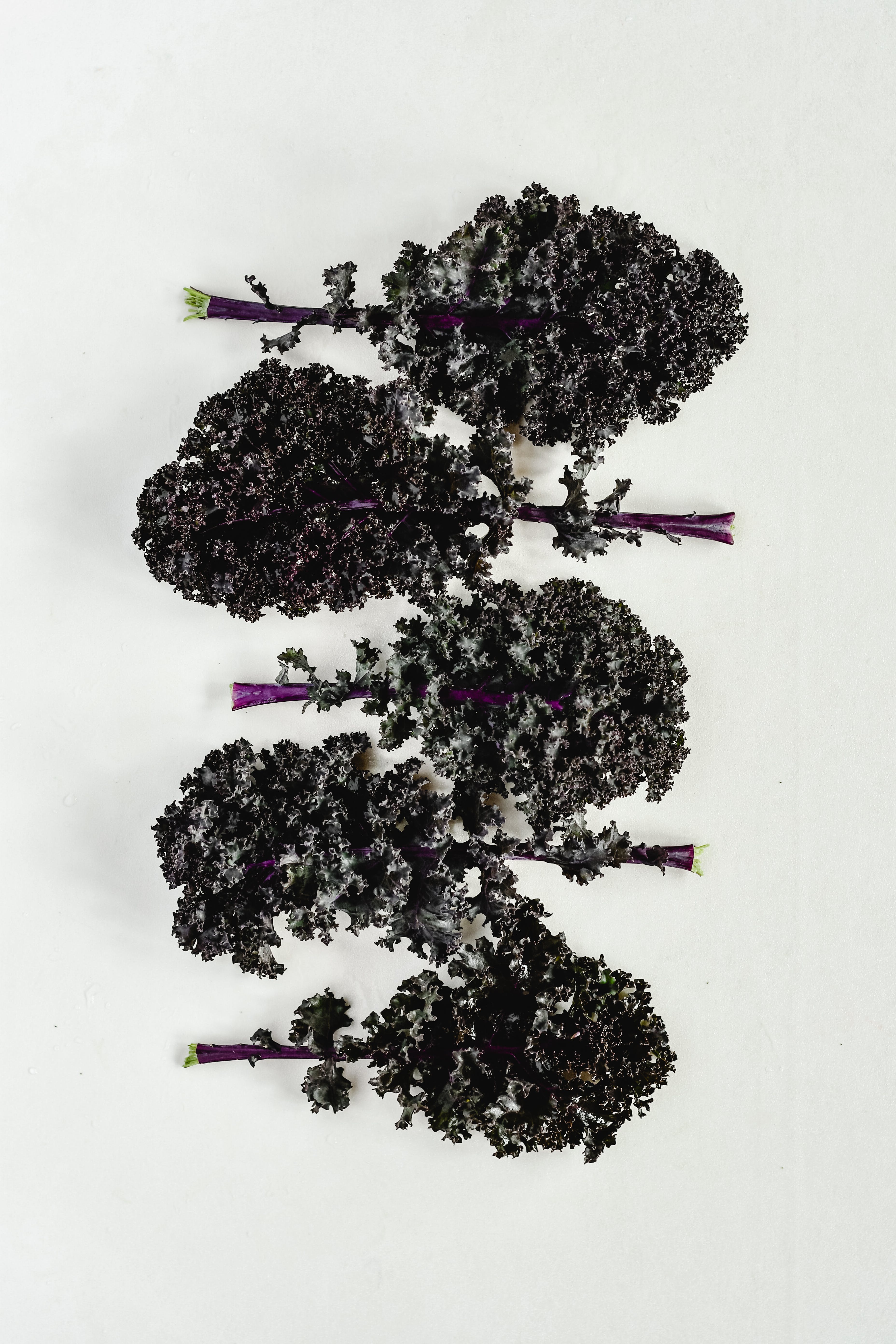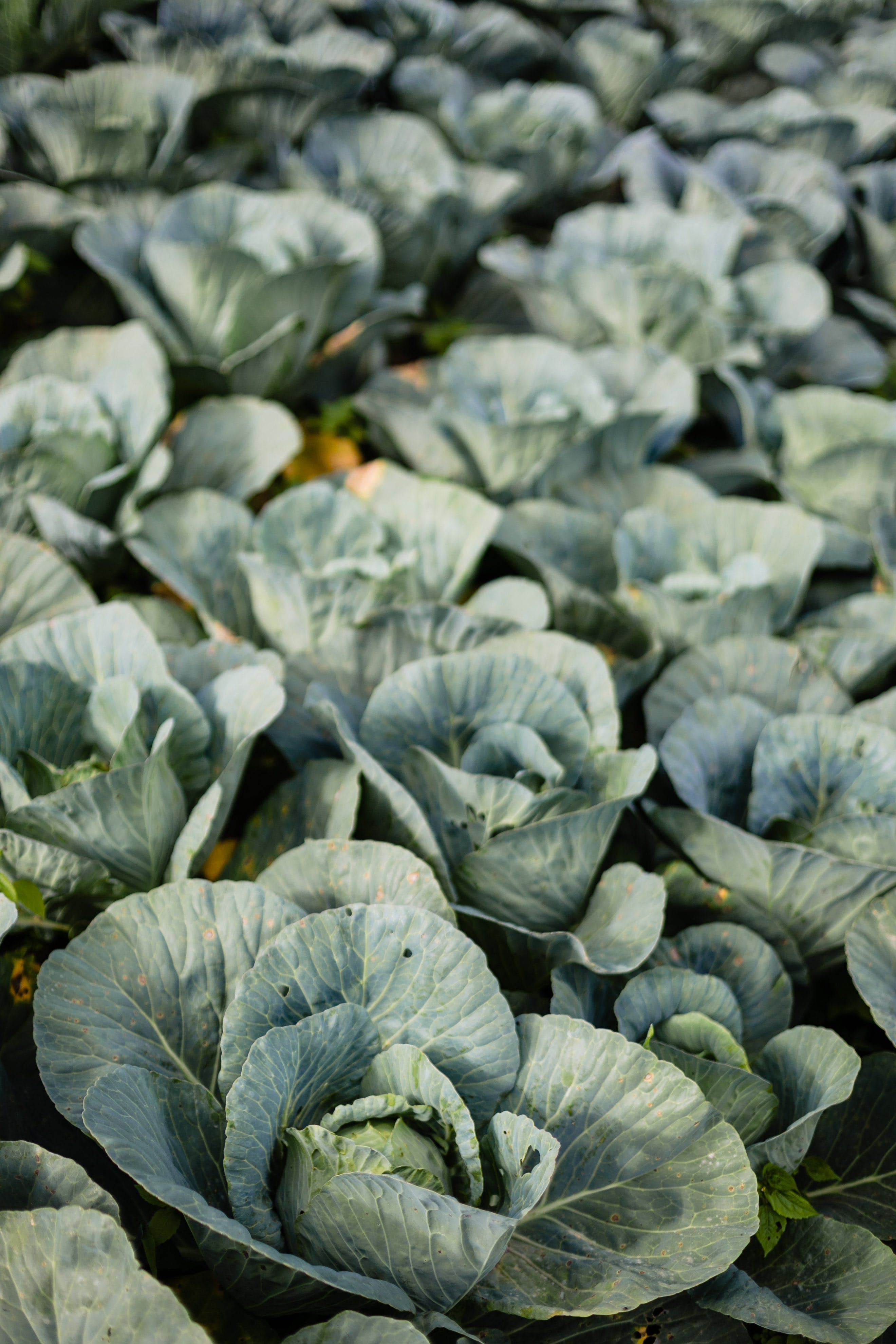Cruciferous vegetables, members of the Brassicaceae family, are characterized by their unique cross-shaped flowers. These vegetables are rich in essential nutrients and compounds that offer numerous health benefits. Here are some of the key health benefits associated with consuming cruciferous vegetables:
- Rich in Nutrients:
- Cruciferous vegetables, including broccoli, kale, cauliflower, Brussels sprouts, and cabbage, are rich in essential nutrients such as vitamins C, K, and E, folate, and minerals like potassium and calcium.
- High in Fiber:
- Cruciferous vegetables are an excellent source of dietary fiber. Most of us are not eating enough fiber. Fiber promotes digestive health, helps maintain a healthy weight, and can contribute to a feeling of fullness, reducing overall calorie intake (1).
- Antioxidant Properties:
- These vegetables contain various antioxidants, including carotenoids, flavonoids, and polyphenols. Antioxidants help neutralize harmful free radicals in the body, protecting cells from oxidative stress and inflammation.
- Cancer Prevention:
- Cruciferous vegetables are often associated with a reduced risk of certain cancers, including breast, prostate, lung, and colorectal cancers. Compounds like sulforaphane, found in broccoli and other cruciferous vegetables, have demonstrated anti-cancer properties in studies (2).
- Detoxification Support:
- Some compounds in cruciferous vegetables, such as glucosinolates, can support the body’s detoxification process. When these vegetables are chewed or chopped, glucosinolates are broken down into bioactive compounds like indole-3-carbinol and sulforaphane, which have been studied for their potential detoxification effects.
- Heart Health:
- Cruciferous vegetables can help lower cholesterol levels! The fiber, antioxidants, and anti-inflammatory properties of these vegetables play a role in cardiovascular health.
- Anti-Inflammatory Effects:
- The compounds found in cruciferous vegetables, particularly sulforaphane, have anti-inflammatory properties that help reduce inflammation in the body. Chronic inflammation is linked to various health issues, including type 2 diabetes, obesity, heart disease and even cancer.
- Blood Sugar Regulation:
- Some cruciferous vegetables, such as Brussels sprouts and kale, have been shown to regulate blood sugar levels. The fiber content, along with certain phytochemicals, can contribute to improved insulin sensitivity (3).
- Bone Health:
- Cruciferous vegetables are a good source of vitamin K and calcium, both of which are essential for bone health (4). Vitamin K is necessary for proper bone mineralization and calcium absorption.
Conclusion:
Brassicaceae vegetables, such as broccoli, cabbage, and kale, are rich in nutrients, including vitamins, minerals, and antioxidants, which contribute to overall health. Regular consumption of Brassicaceae vegetables is linked to various health benefits, including improved cardiovascular health, immune support, and a reduced risk of certain cancers. My favorite way to eat kale and radishes is in salads, while cabbage, broccoli and brussel sprouts taste amazing roasted (check out some recipes).





